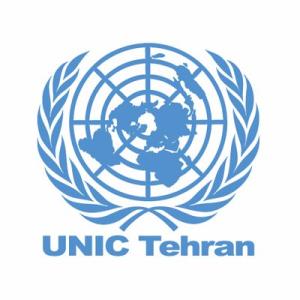UN’s Policy Brief on Persons with Disabilities and COVID-19
07 May 2020
There are 1 billion persons with disabilities worldwide – they are among the most excluded groups in our society. Even under normal circumstances, they are less likely to access health care, education, employment and more likely to live in poverty and experience violence. COVID-19 further compounds this situation, particularly for people with disabilities in fragile contexts and humanitarian settings.
TEHRAN, 7 May 2020 (UNIC) – Below are the key messages of Policy Brief on Persons with Disabilities and COVID-19 launched by the United Nations Secretary-General, Antonio Guterres at the UN Headquarters in New York on Wednesday 6 May 2020:
There are 1 billion persons with disabilities worldwide – they are among the most excluded groups in our society. Even under normal circumstances, they are less likely to access health care, education, employment and more likely to live in poverty and experience violence. COVID-19 further compounds this situation, particularly for people with disabilities in fragile contexts and humanitarian settings.
- Persons with disabilities are at greater risk of contracting the virus, developing more severe health conditions and dying from COVID-19. They may experience barriers to implement basic protection measures such as handwashing and maintaining social distance as they often rely on physical contact and support. Because of underlying conditions they also stand the risk of developing more severe health conditions and dying from COVID-19.
- In some instances, health-care rationing decisions, including triage protocols (e.g. intensive care beds, ventilators), are based on discriminatory criteria, such as age or assumptions about quality or value of life based on disability.
- People with disabilities, including older persons with disabilities, represent the majority of institutionalized people globally. Within institutions, they are more likely to contract the virus and have higher rates of mortality.
- Persons with disabilities often face incidents of violence in situations of isolation and are at greater risk of domestic violence -- in particular, women and girls with disabilities —which has surged during the pandemic.
- Existing social protection systems offer little support. Only 28% of people with significant disabilities have access to disability benefits globally, and it is only 1% in low-income countries.
Actions for a Disability Inclusive COVID-19 Response and Recovery
- People with disabilities will be excluded from the response and recovery if accessibility of information, communications and environments, as well as goods and services, is not considered. Ensuring accessibility is fundamental to a disability-inclusive COVID-19 response and recovery.
- People with disabilities must have immediate access to health services — to information, testing and lifesaving procedures. Persons with disabilities should not be discriminated in the provisioning of life-saving health-care services and ethical principles that prioritize treatment for persons in situations of particular vulnerability must be applied.
- Within institutions, immediate steps must be taken to prevent and respond to potential infections, and wherever possible, reduce the number of persons with disabilities in all institutional settings.
- Expand both mainstream and targeted social protection programmes for persons with disabilities and their families, such as increasing payments of disability benefits; extending coverage to persons with disabilities; providing disability top-up grants, including to family members who have to stop work to support persons with disabilities.
- People with disabilities are more likely to lose their jobs as a result of the crisis and will experience greater difficulties returning to work. Stimulus packages, including those that promote training and jobs, should address the specific situation of persons with disabilities, particularly women and youth with disabilities.
- Consulting and involving people with disabilities and their representative organizations is key to an inclusive COVID-19 response. People with disabilities are a diverse population, possessing unique knowledge and lived experience of disability. This can offer models for navigating the current situation and contribute to innovative solutions and recovery.
- Governments, donors, UN agencies and other actors need to establish accountability mechanisms to monitor investments and ensure disability inclusion in the COVID-19 response, including through the collection and disaggregation of data by disability. New investments must not create new barriers for people with disabilities — if considered from the design stage, ensuring accessibility can cost as little as 1% more.
- Humanitarian and disaster contexts create specific and heightened challenges for people with disabilities in the COVID-19 outbreak. The IASC Guidelines on Inclusion of Persons with Disabilities in Humanitarian Action should be the guiding framework for the humanitarian sector to enable disability-inclusive humanitarian assistance and disaster response.
- A disability-inclusive COVID-19 response and recovery will provide for more inclusive and accessible systems to achieve the promise of the 2030 Agenda — to leave no one behind. The United Nations Disability Inclusion Strategy is the UN’s commitment to ensuring that the organization is doing its part to achieve transformative and lasting change, including in this crisis.



